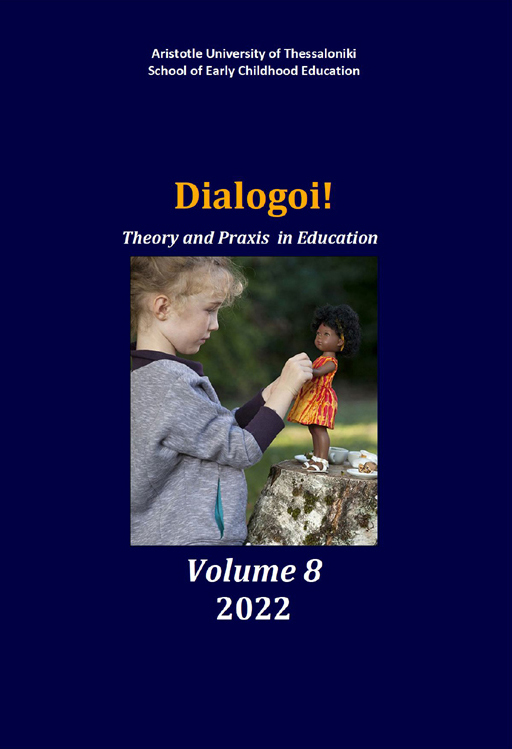Literacy development in kindergarten: preschool teachers’ and primary school teachers’ views and practices

Abstract
Over the last years there have been different theoretical models describing preschool children’s literacy skills and knowledge. Furthermore, the social, cultural, economic and technological changes that took place in Europe during the 21th century influenced the educational practices in different countries and also influenced the definition of literacy and the related literacy teaching practices in preschool education.
The aim of the present study is to examine preschool teachers’ literacy practices in kindergarten, and the factors that the teachers consider that influence their practices. Furthermore, this study aims to compare preschool teachers’ views to first grade teachers’ views with regard a) to the literacy skills and knowledge that children should develop during kindergarten attendance and b) to the similarities and differences that exist between literacy practices that are implemented by teachers at kindergarten and at the first grade.
For the needs of the present study, a qualitative research was conducted. The results are based on data collected through individual semi-constructed interviews with ten preschool teachers and ten first grade teachers enrolled from public schools of Crete in Greece. Content analysis was performed in order to analyze teachers’ answers.
Data show that practices of the majority of the preschool teachers of our sample are in line with the theoretical approach of emergent literacy, but some literacy skills and knowledge still are not being developed by the current implemented practices sufficiently. Furthermore, the evolution of preschool teachers’ practices about early literacy instruction is affected by different factors, especially those related to their teaching experience, in-service education and the evolution of children’s abilities and needs. Our data also show that first grade teachers have limited knowledge of literacy skills and practices related to preschool education. Specifically, they all agree that preschool education have an important role in children’s literacy development but they don’t expect preschool teachers to teach children a variety of literacy skills and knowledge. The comparison of preschool teachers’ views to first grade teachers’ views provides also some interesting insight regarding this parameter highlighting the differentiation that is observed regarding sample teachers’ views.
Article Details
- How to Cite
-
Kreza, M., & Chlapana, E. (2022). Literacy development in kindergarten: preschool teachers’ and primary school teachers’ views and practices. Dialogoi! Theory and Praxis in Education, 8, 98–125. https://doi.org/10.12681/dial.27754
- Issue
- Vol. 8 (2022)
- Section
- Scientific columns

This work is licensed under a Creative Commons Attribution-NonCommercial-ShareAlike 4.0 International License.
Authors who publish with this journal agree to the following terms:
- Authors retain copyright and grant the journal right of first publication with the work simultaneously licensed under a Creative Commons Attribution Non-Commercial License that allows others to share the work with an acknowledgement of the work's authorship and initial publication in this journal.
- Authors are able to enter into separate, additional contractual arrangements for the non-exclusive distribution of the journal's published version of the work (e.g. post it to an institutional repository or publish it in a book), with an acknowledgement of its initial publication in this journal.
- Authors are permitted and encouraged to post their work online (preferably in institutional repositories or on their website) prior to and during the submission process, as it can lead to productive exchanges, as well as earlier and greater citation of published work (See The Effect of Open Access).


